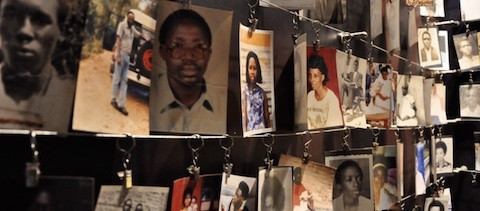
GCED Basic Search Form
Quick Search
You are here
News

The legacies of violent pasts affect societies in all regions of Africa and across the world. Strengthening context-sensitive approaches to genocide education and mass atrocity prevention in the region, UNESCO and the UN are launching a new education project tailored to the needs of teachers and teacher trainers. Following an initial consultative process and curriculum review in six pilot countries, the project will produce a teachers’ guide on educating about mass atrocities in African contexts, to be disseminated via regional and national workshops for teachers and teacher trainers.
On 25 March, education stakeholders from Kenya, Namibia, Rwanda, South Africa, South Sudan and Zimbabwe joined the inception meeting to learn about the project’s framework and objectives and discussed local and regional challenges related to violent pasts and the impact on education systems. Framing the discussion, Freddy Mutanguha, Executive Director of Aegis Trust and Director of the Kigali Genocide Memorial, spoke about his work in Rwanda and the wider legacy of colonialism and genocide across Africa. Following his presentation, participants from all six countries exchanged ideas about the important role of education in dealing with difficult local histories and strengthening social cohesion and peace today, while stressing the need to embed related efforts in existing education frameworks.
The project posits teachers as agents of change and facilitators of learning about mass atrocity and global citizenship. Educating about genocide and other violent pasts can be a challenge for teachers: it entails extremely complex historical processes and confronts educators with navigating related political debates and conflicting narratives. Likewise, teachers need to develop awareness of their own biases, especially if the history they are teaching is lived experience, or within living memory. Access to guidance materials, relevant resources and training is therefore crucial to build the skills and confidence of educators in this respect.
The project is the first of its kind implemented by UNESCO and the UN with a strict regional focus. Countries around the world are marked by violent pasts and at potential risk of conflict and genocide. Localized approaches are needed to effectively address regional dynamics and historical specificities. Jointly coordinated by UNESCO International Institute for Capacity-Building in Africa (IICBA), UNESCO Section for Global Citizenship and Peace Education, and UN-mandated Outreach Progammes on the Holocaust and the 1994 Genocide against the Tutsi in Rwanda, the project will rely on the insights and expertise of regional and international stakeholders, scholars and experts in the field of genocide and global citizenship education, as well as peace and human rights education. Project partners include the Office of the United Nations Special Adviser on the Prevention of Genocide and Global Action against Mass Atrocity Crimes (GAAMAC).
The event was attended by Yumiko Yokozeki, Director of UNESCO IICBA; Maher Nasser, Director of the Outreach Division, United Nations Department of Global Communications; and Cecilia Barbieri, Chief of Section for Global Citizenship and Peace Education, UNESCO.
The project on genocide and global citizenship education in Africa is being piloted in Kenya, Namibia, Rwanda, South Africa, South Sudan and Zimbabwe. Find out more about global efforts undertaken by UNESCO and the UN to educate about violent pasts and prevent future genocide.
URL:
https://en.unesco.org/news/unesco-and-launch-project-strengthen-genocide-education-africa
